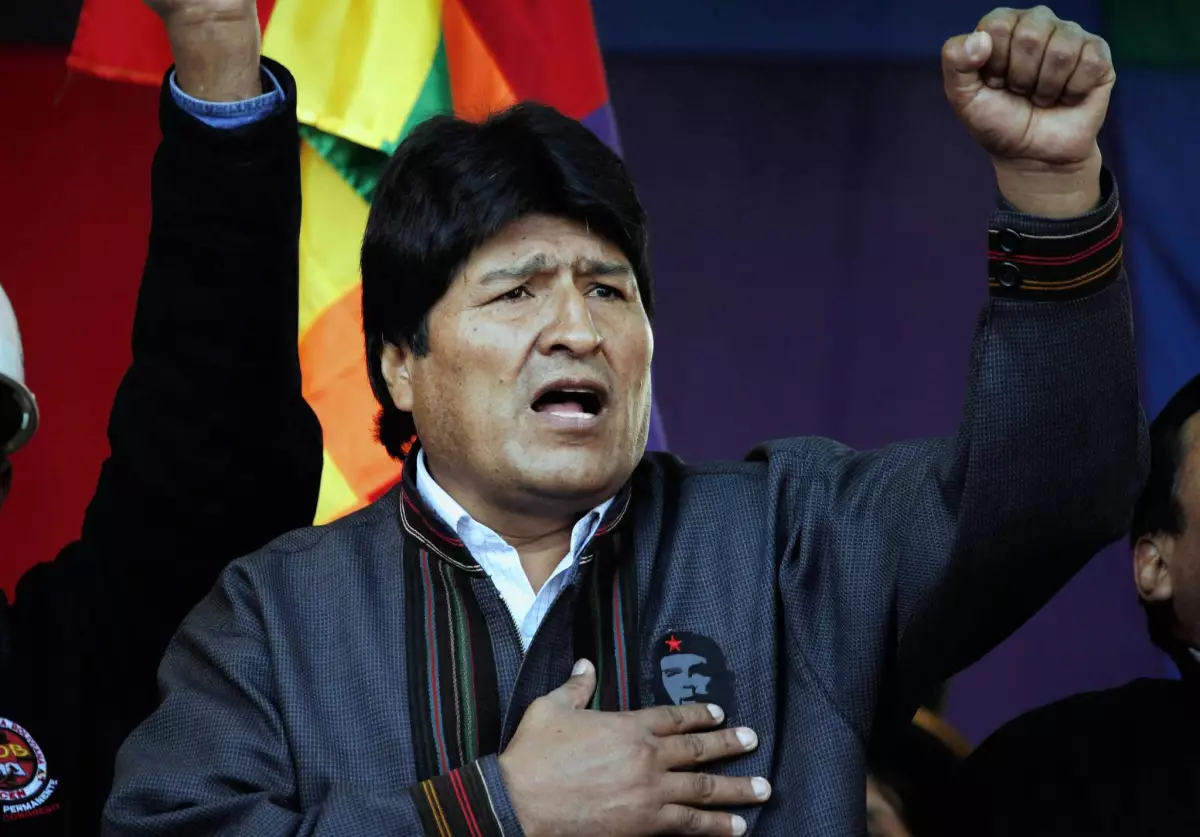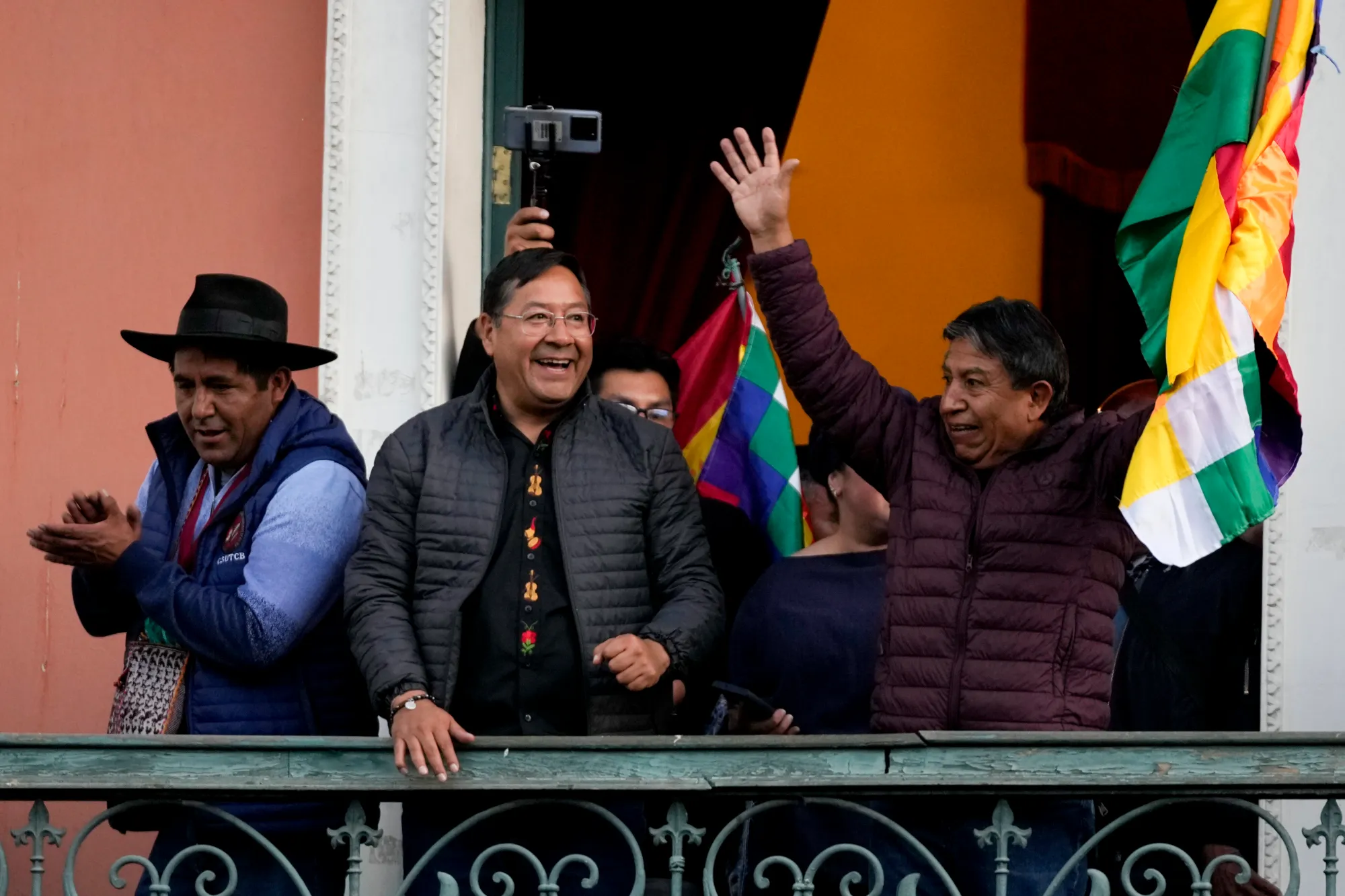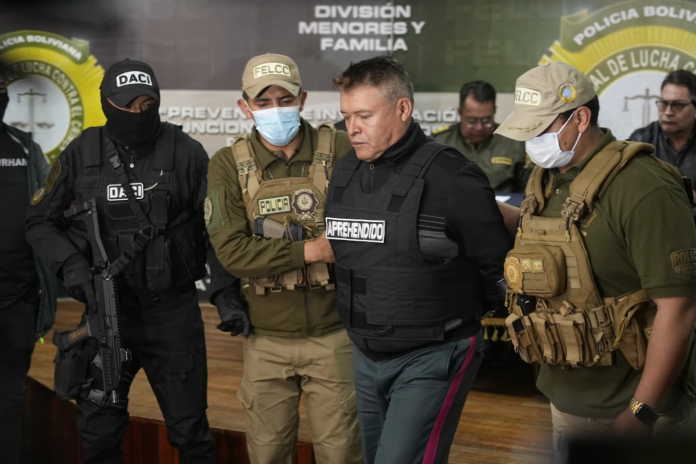In a shocking turn of events, members of the Bolivian military attempted to overthrow President Luis Arce’s government on Wednesday. Soldiers stormed the Presidential Palace at Murillo Square under the direction of former Commanding General of the Bolivian Army Juan Jose Zuniga who announced a “new cabinet” would be formed.
Precursor to the Attempted Coup
The coup follows General Zuniga’s controversial threat that he would arrest former President Evo Morales if he ran for president. Morales resigned from office in 2019 amid what he claims was a coup after armed intruders entered his home in an alleged attempted arson attack alongside large-scale protests against his presidency. These protests began following the president’s announcement that he would run for a third term under the Movement for Socialism party (MAS), an illegal move as presidents in Bolivia are limited to two terms.

In order to secure a third term in office, Morales held a 2016 referendum to abolish term limits. This referendum failed, prompting the then-president to appeal to Bolivia’s Supreme Court to allow Morales’ presidential campaign in 2019. Morales won the subsequent election but faced growing public opposition to his new term amid allegations of electoral fraud after the president suspended the preliminary vote count after Morales was trailing in the polls. Electoral authorities later announced that Morales won the vote with just over 10 percent of the popular vote, allowing him to secure office without a run-off election.
Following Morales’ resignation from office and subsequent flight to Mexico, the acting government announced another election for the presidential office. This election was won by fellow MAS party member, Luis Arce, who took office in 2020. Critics accused Arce of being a puppet for Morales, a claim the president denies to this day.

After General Zuniga’s threat to arrest Morales, Arce removed the general from his position just a day prior to the attempted coup. Morales previously accused the general of organizing a plot to eliminate coca production leaders and political opponents, leading some to speculate that the coup plot had been planned far in advance.
The coup also takes place during a turbulent period within Bolivian history. Bolivia has found itself in economic despair since the COVID-19 pandemic which shut down nations across the world. Furthermore, Morales’ return signaled internal struggles within MAS as Morales announced plans to run for a fourth term as president in Bolivia’s 2025 elections, pitting himself against Arce who is expected to run for reelection in the same election.
The Beginning of the Failed Coup
Prior to the attempted coup, Bolivian officers reportedly ordered soldiers to remain in their barracks, according to Morales.
At 1:57 p.m. local time, President Arce denounced what he termed as “irregular mobilizations” of the Bolivian Army in the nation’s capital of Sucre. Shortly after this statement, a small number of military units entered Plaza Murillo where both the Presidential Palace and Bolivia’s congress are located. Special forces snipers reportedly took positions overlooking the plaza prior to the mobilization of military units, a move which Morales claimed indicated the participants in the coup had “prepared the coup d’état in advance.”
Denunciamos que un Grupo del Regimiento Especial de Challapata "Mendez Arcos" tomaron la Plaza Murillo con francotiradores. Esto pareciera indicar que prepararon con anticipación el Golpe de Estado.
Pido al pueblo con vocación democracia a defender la Patria de algunos grupos…— Evo Morales Ayma (@evoespueblo) June 26, 2024
Shortly after the arrival of the general and soldiers serving under him, Zuniga stated his forces took to the plaza in “annoyance” with the current government before continuing, stating that forces “are going to take over.”
“There will be a new Cabinet. Ministers will be changed, but our State cannot continue like this, doing whatever it wants. We are showing our annoyance, it is our duty, our obligation that the Armed Forces recover this country again, enough of impoverishing the country and humiliating the Army,” the general told reporters at the scene.
After speaking to the press, Zuniga’s forces broke the door leading to the presidential palace where Arce was located before entering alongside the general. What followed was a tense standoff wherein the president ordered the general to disband his forces, a demand which was ultimately refused. Following the standoff, Arce swore in new commanders of the nation’s military and called for Bolivians to resist the coup.
“I am your captain, and I order you to withdraw your soldiers, and I will not allow this insubordination,” Arce told the general.
This call was answered, as hundreds of Arce supporters arrived at the scene of the coup and began clashing with soldiers there. Amid increasing pressure from the public alongside a lack of support from others within the Bolivian military, Zuniga fled the plaza alongside his soldiers. After his flight, Bolivia’s Prosecutor’s Office launched a criminal investigation into the general which ultimately led to his arrest hours after his departure.
Que cena linda! Milicos sendo postos pra correr pelo povo boliviano na praça Murillo em La Paz. A Bolívia não é feudo do @elonmusk pic.twitter.com/NolowjSIRM
— Rogério Tomaz Jr. (@rogeriotomazjr) June 26, 2024
Deputy Minister of the Interior and Police, Jhonny Aguilera, yelled “we are going to look for you Zuniga” and “Zuniga you are going to be imprisoned” as he left the scene.
During his arrest, Zuniga claimed he operated on the orders from Arce. “The president told me: ‘The situation is very screwed up, very critical. It is necessary to prepare something to raise my popularity’,” the general told those at the scene of his arrest.
If Zuniga’s claims are true, Arce’s alleged plot would prove to be another scandal for MAS following Morales’ failed third term in office. The choice of Zuniga could also be practical, removing an alleged opponent of MAS’ goals and replacing the general with one more aligned with the desires of the party. Some have suggested that Zuniga’s claims are a desperate attempt to save his own life from the Bolivian justice system, or perhaps to bring Arce down alongside him.
Soldiers are now barricading roads leading to the plaza. pic.twitter.com/I2GdTjIWiW
— Trent Barr (@Atlas_Trent) June 26, 2024
National leaders and organizations across the world have denounced the attempted coup, with the Organization of American States, Colombian President Gustavo Petro, and President-elect of Mexico, Claudia Sheinbaum, all speaking against the Zuniga’s actions. Interestingly, Petro claimed that “there seems to be a coup in Colombia,” though the president failed to clarify these claims.
Following the defeat of the attempted coup, Bolivians across the country reportedly began buying large quantities of food and other necessities in preparation for the possibility of future conflict within the nation. Despite the failure of the coup, Bolivia stands on shaky ground, having demonstrated the nation’s precarious stability, where ongoing political struggles could turn to deadly factionalism.

